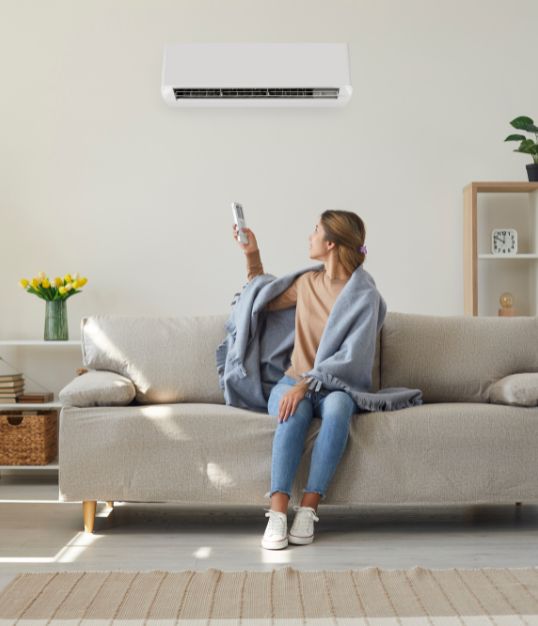Is your air conditioning system struggling to keep up with your cooling needs? As trusted experts in HVAC solutions, we understand the importance of maintaining a comfortable indoor environment. Like all mechanical systems, air conditioners have a finite lifespan. When they start showing signs of failure, air conditioning replacement or upgrading to a new, energy-efficient HVAC system becomes a smart, long-term investment.
Our goal is to help you recognise the warning signs of an ageing air conditioner and guide you toward efficient and cost-effective solutions. In this guide, we’ll explore common air conditioner problems, the benefits of upgrading, and how to tell it’s time for an upgrade.
How Long Does an Air Conditioner Last?
Your air conditioning system serves as the heart of your home’s comfort during warm months. Most residential air conditioning units typically last between 10-15 years, though this timeline can vary significantly based on several factors affecting an air conditioner’s lifespan. Regular maintenance plays a crucial role in maximising your system’s longevity. An AC unit that receives consistent professional care can often exceed its life expectancy.
Climate conditions, usage patterns, and installation quality all influence how long your system will last. Professional installation ensures your unit operates at peak efficiency from day one. Preventative maintenance isn’t just about extending your air conditioner’s lifespan, it’s about ensuring it operates efficiently and preventing costly emergency repairs.
Common Air Conditioner Problems

Your AC units often provide clear indicators when it’s time for a replacement. Rising energy bills, despite consistent usage patterns, serve as an early warning sign. If your unit requires frequent repairs or produces unusual sounds, these issues signal declining performance.
Critical signs include:
- Inconsistent cooling between rooms
- Unusual sounds during operation
- Frequent cycling on and off
- Excessive humidity indoors
- Rising energy costs
- Refrigerant leaks
- Strange odours from vents
Benefits of Upgrading to an Energy-Efficient HVAC System
Upgrading to a modern HVAC system or exploring various air conditioning systems brings numerous advantages. Newer models achieve significantly higher SEER ratings (Seasonal Energy Efficiency Ratio) than older models, translating to lower monthly operating costs. Benefits include:
- Lower energy bills: Advanced technology reduces energy consumption significantly.
- Environmental impact: Reduced energy use translates to a smaller carbon footprint.
- Enhanced comfort: Features like smart thermostats and improved air filtration systems provide better indoor air quality and temperature control.
By upgrading, homeowners can enjoy a system tailored to their needs while saving money in the long run.
The Cost of Replacing an AC System
Investing in a new air conditioning system requires careful consideration of several factors. Air conditioning installations can vary significantly in cost; however, the initial investment often pays for itself through reduced energy consumption and maintenance costs.
Factors affecting the cost include:
- Home size and layout
- Desired efficiency rating
- Installation complexity
- System type
- Additional ductwork needs

Planning Your Home AC System Replacement

A successful AC replacement begins with proper planning. Start by scheduling a professional assessment of your current system and home cooling needs to install air conditioning.
Consider factors like:
- Home size and insulation quality
- Local climate conditions
- Energy efficiency goals
- Budget constraints
- Future home improvements
When planning to install air conditioning, it’s crucial to consider the new unit’s compatibility with your existing HVAC systems. This ensures optimal performance and efficiency.
As professional installers, we evaluate your home’s specific requirements and recommend systems that are appropriately sized. We’ll also inspect existing ductwork and suggest necessary modifications for optimal performance.
Contact Us
Recognising the signs of a failing AC unit helps you make proactive decisions about replacement. Modern energy-efficient systems offer improved comfort, reduced running costs, and enhanced features, making upgrading a worthwhile investment.
Need expert guidance on your air conditioner replacement? Contact our certified technicians to discuss your options and receive a customised solution for your home.

